James Bryan
Baby Ben (from Noah Lacy G)
|
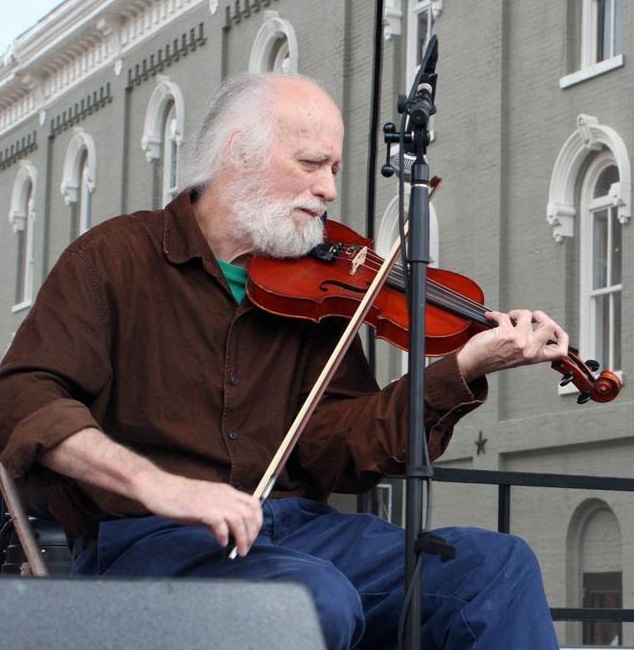
James Bryan is considered by many to be the best traditional Southern fiddler playing today. Born in 1953 and raised in Boaz, Alabama, James began playing fiddle at the age of eleven. He was encouraged by his father, Joe Bryan who played guitar and taught James his first tunes. He learned tunes from local repertoires as well as bluegrass tunes from master fiddler Kenny Baker who accepted Bryan as an apprentice. He plays Southern old-time and bluegrass tunes learned by ear as well as vintage tunes from New England and Britain, many collected from rare old tune books or gleaned from his extensive knowledge and archive of old 78 rpm records. He won his first fiddle contest at the age of twelve. In 2011, James received the prestigious Alabama Folk Heritage award for his lifetime of fiddling. (Kentucky Coffeetree Cafe) Discography |
Chirps Smith
Adrian's Hornpipe (from Bob Walters G)
|
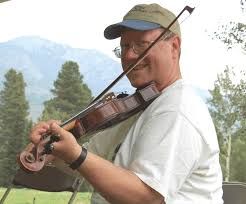
Chirps Smith, Lynn "Chirps" Smith was born and raised in downstate Illinois. As a young man, he played with the Indian Creek Delta Boys and learned fiddle tunes directly from old-timers, including Harvey "Pappy" Taylor and Noah Beavers. This homemade music was transported to the Midwest by homesteaders who, bringing their fiddle tunes with them, multiplied them by learning new ones from their neighbors. Chirps became a regular player at Chicago Barn Dance Company's dances after moving to Chicago in 1978. Since 1985, he has played lead fiddle in the Volo Bogtrotters string band and currently plays in the New Bad Habits. The Field Recorder's Collective Discography |
Cyril Stinnett
Boys Around The World (A)
|
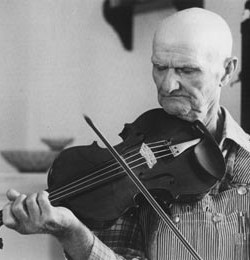
Cyril Stinnett (1912-1986) was born near Savannah, in northwest Missouri. His father was a farmer and a fiddler. Cyril began playing fiddle around age eight, practicing secretly in the basement on his dad's fiddle before surprising his dad with his new ability. Within a couple of years he was playing for dances. He competed at his first fiddle contest at a church ice cream social when he was eighteen and won it. Owing to an early childhood accident to his right hand, Cyril learned to play left-handed using a conventionally strung fiddle. One of Cyril's hallmarks was an extensive repertoire of tunes (well over three hundred by objective accounts) many of which he had learned from Bob Walters of Nebraska, Casey Jones of Missouri and Canadian fiddlers that he heard on the radio. |
Buddy Thomas
Blue Goose (G)
|
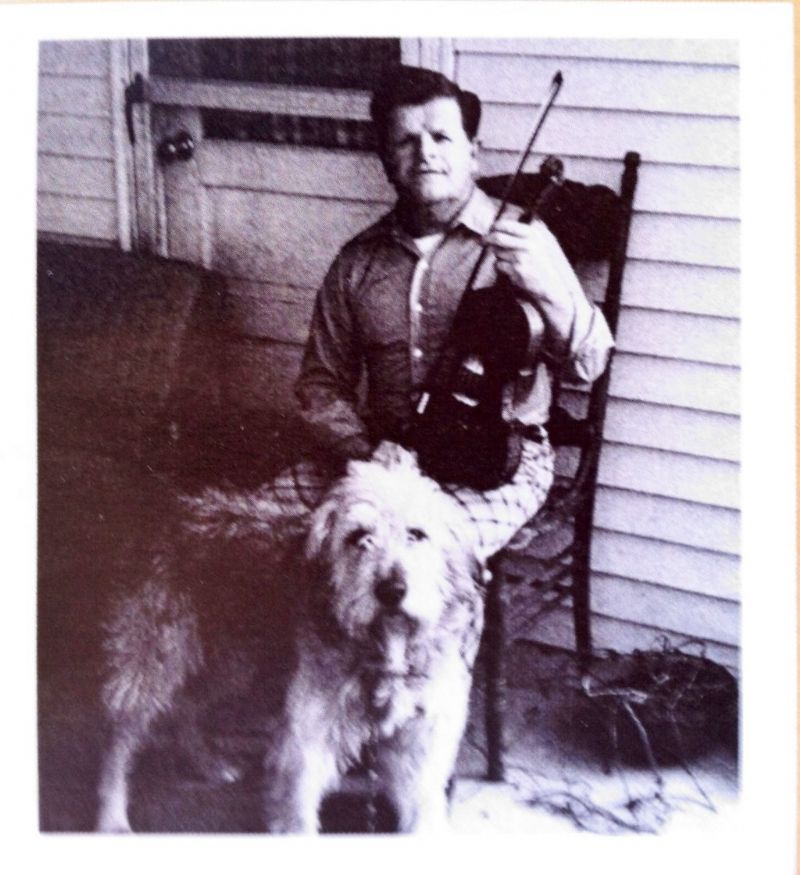 Buddy Thomas (1935-1974), the great northeastern Kentucky fiddler who died a young man at the age of 39, grew up - "so poor that even the poor folks said we were poor." He learned from sources such as his mother's whistling, relatives and friends such as Perry Riley, Jimmy Wheeler, Morris Allen, and a bunch of 78 rpm records gotten in trade. (Ray Alden) Discography |
Bob Walters
Art Wooten's Hornpipe (G)
|
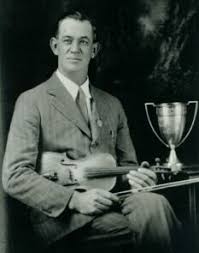 Bob Walters (1889-1960), is a seminal figure in Midwestern fiddling whose influence on the tradition was considerable during the 1940 and 50s, the heyday of agricultural broadcasting in the Central states. Walters, a Nebraska native, performed over numerous radio stations in the region and was widely admired and imitated by such well-known performers as Cyril Stinnett, Lonnie Robertson, Casey Jones and Dwight Lamb. Bob was a consistent winner in local contests, at one point having won 34 out of the 38 he had entered. Perhaps his biggest win was in the 1931 Tri-State Championship in Sioux City, Iowa. Walters had an extensive repertoire of tunes, many of which were collected and published in 1973 by R.P. Christeson in The Old Time Fiddler's Repertory. |
Melvin Wine
All Young (Amix)
|
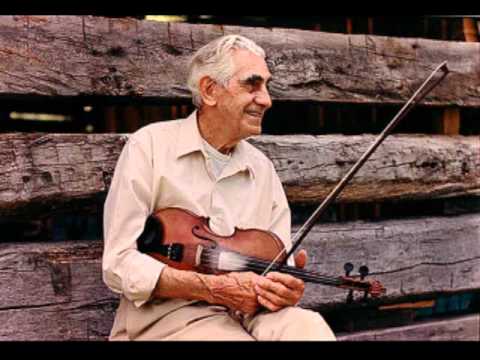 Melvin Wine (1909-2003) was an Appalachian fiddler from Braxton, West Virginia. The Wine family fiddling tradition began with Melvin's great-grandfather David S. "Smithy" Wine who was born in 1829. Melvin dropped out of school in the first grade and was unable to read or write, or to read music. He picked up the fiddle at age nine, while his father was out of the house working as a farmhand. As a teenager, he began playing for dances and community gatherings. At age 13, Wine won a fiddler's contest in Gassaway, West Virginia, beating the longtime champion, an older man named Bailey. Mr. Bailey told Melvin he was having a hard time making a living so Wine gave him the prize money. During the Great Depression, Melvin and his brother Clarence performed together in restaurants and bars, and over regional radio. Melvin took whatever work he could find, including many years as a coal miner and then as a farmer. As a young adult, Wine was performing at a party where he witnessed a man drop dead after swearing at a woman. Melvin took this as a sign and stopped playing the fiddle for more than 20 years. He picked up the fiddle again decades later, to calm his granddaughter one day while babysitting. He decided that playing the fiddle must be a gift so he resumed the craft. Wine was a recipient of a 1991 National Heritage Fellowship awarded by the National Endowment for the Arts, the government's highest honor in the folk and traditional arts. (Wikipedia) |